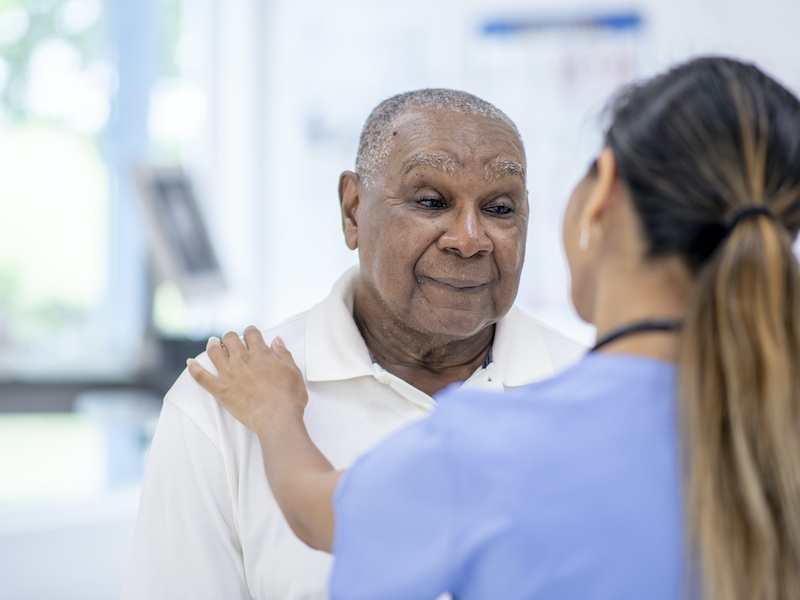
Learn the warning signs of mental health issues in older adults.
They’re called our “golden years” for good reason; growing older brings with it many advantages, including increased wisdom, the freedom to enjoy life without having the responsibilities of a career and young family to raise, in addition to the opportunity to spend more time with family and friends and engaging in activities we enjoy.
Even so, it’s not free from its share of concerns too. Losing family members or friends, long-term medical ailments, along with the standard physical and cognitive changes inherent in aging may cause anxiety, depression, and other mental health issues – in as many as one out of five seniors, according to recent statistics reported by Nursing@Georgetown. That translates to approximately 7 million senior Americans living with depression – 60% of whom are not receiving treatment for the condition.
Left untreated, depression is extremely hazardous for older adults. It’s the leading risk factor for suicide, which has been gradually rising within the United States.
So what can you do to help address mental health issues in older adults and ensure the wellbeing of the older adults you love?
- Watch out for warning signs. Look out for feelings of guilt, hopelessness, helplessness, pessimism, irritability, or worthlessness, loss of interest in enjoyable activities, modifications to eating or sleeping habits, fatigue, or struggles to focus and remember details, and especially if there are any thoughts of suicide expressed.
- Consult with the older adult’s doctor as soon as possible. Explain the signs you’re noticing and arrange for a consultation for a mental health and physical evaluation. The doctor can see whether your loved one is experiencing depression or any other underlying condition that mimics depression, review medications for any potential adverse reactions, and recommend an appropriate treatment plan.
- Most significantly, never ignore any suicidal thoughts or tendencies. A senior loved one who talks about suicide as a way to relieve the pain she or he is experiencing should always be taken seriously, and immediate medical attention should be sought. The National Suicide Prevention Lifeline offers further, confidential advice: 800-273-8255.
Abby Senior Care’s professional in home elderly care in Denver and the surrounding areas can help brighten everyday life for senior loved ones in many ways. Our friendly, compassionate care companions are always available to spend quality time with older adults, engaging in conversations, games, enjoyable outings, hobbies, puzzles, reminiscing, and more, according to each person’s particular interests.
Other ways we can help include:
- Preparing healthy, delicious meals
- Maintaining a tidy and organized home environment
- Providing medication reminders
- Motivating seniors to stay physically active through physician-approved exercise plans
- And so much more
Contact us online or give us a call any time at 303-699-8840 to let us know about the challenges your senior loved one is facing, and request a complimentary in-home assessment to learn more about our top-rated in home elderly care in Denver, CO and the surrounding areas.
